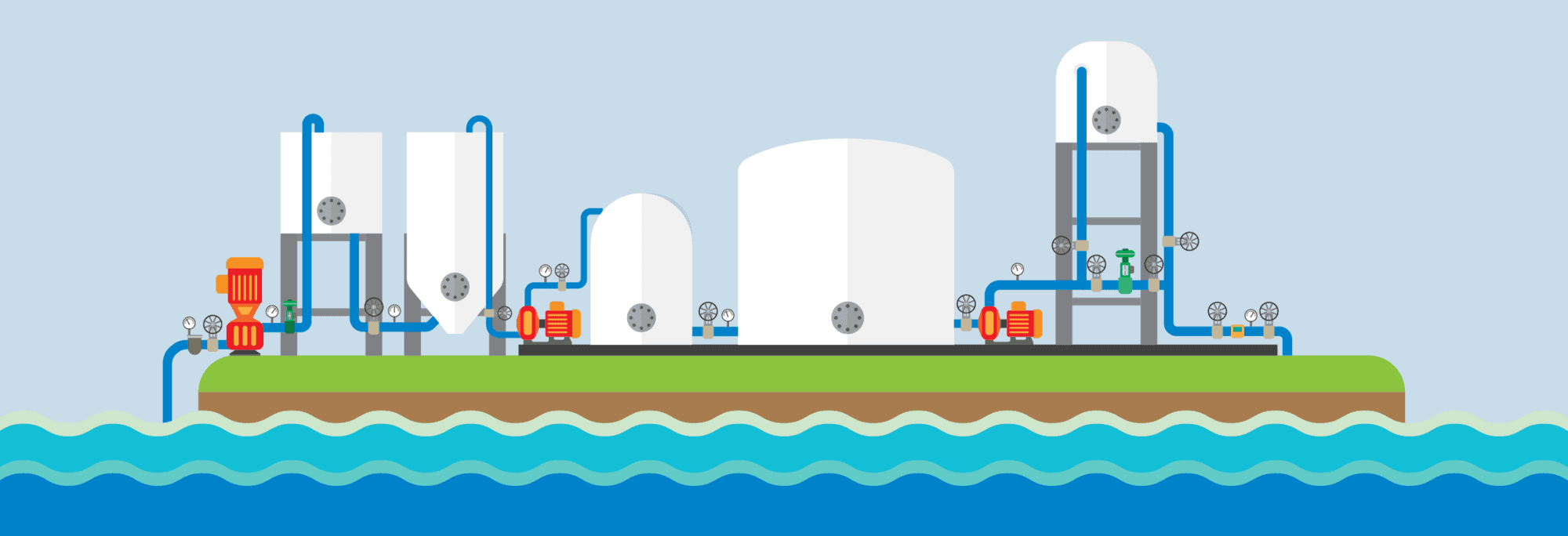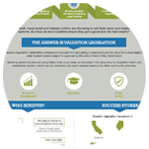The Many Benefits of Utility Valuation Reform

15 STATES have passed utility valuation legislation:
California, Florida, Illinois, Indiana, lowa, Kentucky, Maryland, Missouri, New Jersey, North Carolina, Ohio, Pennsylvania, Texas, West Virginia, and Virginia.
Facing failing infrastructure, an aging workforce, and increasingly stringent water quality and environmental mandates, a growing number of municipal governments no longer want to run their own water and wastewater utilities. The voluntary sale of municipal water and wastewater systems to dedicated water professionals is a proven way for local governments to access the resources and expertise needed to address their water utility challenges.
Unfortunately, unfair and obsolete laws in many states mean municipal governments and taxpayers cannot receive a fair market value price when selling their water and sewer systems.
Utility valuation reform legislation – sometimes called Fair Market Value (FMV) legislation – establishes a clear process for independent appraisal experts to calculate a reasonable and fair value for water and wastewater systems, thereby ensuring that local governments and taxpayers get a fair deal for their assets.
What are the benefits of reforming the utility valuation process?
Experts agree that utility valuation reforms can provide significant benefits for customers and municipalities.
Safe and reliable water infrastructure |
America’s water companies have an unmatched record of providing superior water quality to customers. The voluntary sale of water and wastewater systems to experienced water professionals is a proven way to enable urgent infrastructure investments and provide greater expertise to municipal operations. |
Help for troubled systems |
Valuation reforms provide lifelines to troubled systems facing enforcement orders from state and federal regulators, allowing them to regain system compliance and retire utility debt. Without reforms, these systems would be valued at next to nothing, severely limiting the benefits of a sale. |
Professional operators with a singular focus |
While local governments have numerous competing priorities beyond water services, water companies are able to singularly focus their professional expertise squarely on providing high-quality water service to communities. |
Strong consumer protections |
Valuation reforms require all system sales to be reviewed by state public utility commissions via a transparent, open process. Regulators must approve all water system transactions and can reject an unreasonable purchase price or any sale that is not in the best interest of the public. |
Access to capital for municipal priorities |
Under valuation reforms, municipalities get a better deal for their assets and can put those resources toward other local priorities. Even municipalities that do not face urgent infrastructure challenges have found voluntarily selling water and wastewater systems can be an effective way to offload risk, monetize assets, and focus resources on other local needs. This may include paying down debt, funding pension obligations, making other infrastructure improvements, investing in economic development initiatives, or providing other government services. |
LEARN MORE













